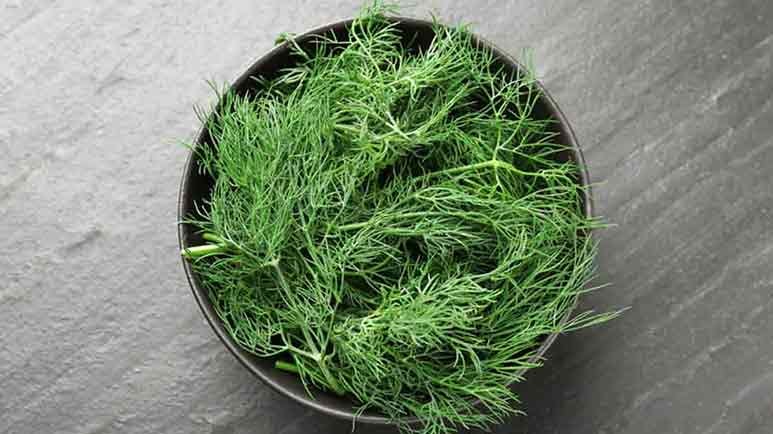This Savory Herb Helps Relieve Muscle Cramps and Improve Digestion Naturally
Description
STORY AT-A-GLANCE
Dill is a powerful herb rich in antioxidants, vitamins, and minerals that help ease muscle cramps, improve digestion, and support heart health
Flavonoids in dill protect your muscles and blood vessels from oxidative stress, helping you stay strong, active, and mentally sharp as you age
Drinking dill tea or adding fresh dill to meals calms digestive discomfort, reduces bloating, and promotes smoother digestion
Research shows dill helps balance blood sugar and hormones, easing menstrual cramps and supporting steady energy throughout the day
Using dill regularly in food or drinks fights inflammation and provides everyday support for muscle recovery and circulation

Used for centuries in kitchens and traditional medicine alike, dill has quietly earned its place as one of nature’s most functional herbs. Its delicate flavor hides a powerful secret: inside those feathery leaves is a mix of nutrients and plant compounds that work in harmony with your body’s natural systems. Modern researchers are now rediscovering what ancient cultures seemed to understand instinctively — that dill supports vitality from the inside out.
Far more than a garnish, dill’s unique chemistry supports your body’s ability to repair, recover, and maintain balance. It interacts with the muscles that keep you moving, the heart that keeps blood flowing, and the digestive system that fuels your energy. Even a small serving offers meaningful nutrition, helping your body perform better under stress, recover faster after activity, and feel more resilient overall.
As scientists continue exploring how traditional foods contribute to long-term health, dill stands out as an herb that bridges old wisdom with modern understanding. Its story isn’t just about flavor — it’s about restoring strength, calm, and balance where your body needs it most.
Dill’s Flavonoids Strengthen Muscles, Calm Inflammation, and Support Heart Health
A report in The Independent revealed that dill is packed with flavonoids — plant-based compounds that fight inflammation, oxidative stress, and the breakdown of tissues.1 These antioxidants are directly linked to slower aging, stronger muscles, and sharper cognition. Researcher Aedin Cassidy from Queen’s University Belfast explained that flavonoids help preserve skeletal muscle mass and protect against frailty, keeping you active and mentally sharp longer into life.
Flavonoids fight oxidative stress, the hidden cause of many age-related issues — Oxidative stress refers to an imbalance between harmful molecules called free radicals and your body’s ability to neutralize them. When that balance tips, damage occurs inside your cells, speeding up aging and inflammation.
<label class="hide-text" contenteditable="false">Text within this block will maintain its original spacing when published</label>Dill’s flavonoids reduce this stress, helping your blood vessels stay flexible and your tissues resilient. Eating dill supports the “maintenance crew” that keeps your cells functioning smoothly. This process plays a key role in preventing frailty and preserving both physical and mental health.
A tablespoon of dill delivers a meaningful nutrient punch — Fresh dill is loaded with vitamin A for vision, vitamin C for immune strength, and minerals like calcium and potassium that regulate blood pressure. These nutrients work synergistically, meaning they enhance each other’s effects. Calcium helps muscles contract properly, potassium balances fluids and supports nerve signals, and vitamin C repairs tissues after exercise or daily wear.
Dill’s natural diuretic properties reduce swelling and fluid retention — Ancient Egyptians once used dill as a diuretic, and modern science confirms this use. A diuretic is any substance that helps your body release excess water and salt through urine. By doing so, dill helps prevent bloating, water retention, and strain on your kidneys. This process also helps manage blood pressure naturally, without harsh synthetic diuretics.
Pickle juice flavored with dill helps athletes recover faster — One of dill’s most surprising modern uses is in post-exercise recovery. According to dietitian Beth Czerwony, people who experience muscle cramps often find relief after a small shot of pickle juice. The sodium and vitamin K in fermented pickles help replenish electrolytes lost through sweat.
<label class="hide-text" contenteditable="false">Text within this block will maintain its original spacing when published</label>Electrolytes are minerals that carry electrical charges in your body and are necessary for proper muscle contraction. When you sweat heavily, those minerals — especially sodium and potassium — drop, triggering cramps. Dill-infused pickle juice restores that balance quickly and naturally.
Dill Balances Blood Sugar and Eases Hormonal Pain
Dill’s compounds support both metabolic and hormonal balance.2 While dill’s antioxidants protect your cells from damage caused by toxins and aging, its compounds also influence the way your body regulates fat and glucose metabolism, which is important for maintaining healthy blood sugar.
Studies show improved insulin function — In one study, adults with Type 2 diabetes were given 3 grams of dill powder daily. Within weeks, participants saw reductions in fasting insulin levels.3 Their HDL (”good”) cholesterol also increased.
<label class="hide-text" contenteditable="false">Text within this block will maintain its original spacing when published</label>These changes are signs of improved metabolic efficiency — your body’s ability to convert food into usable energy without overworking your pancreas or liver. Dill even affects specific genes responsible for regulating how your body handles sugar and fat.4 This means the herb doesn’t just mask symptoms — it influences the pathways that control how your cells use and store energy.
The benefits extend






